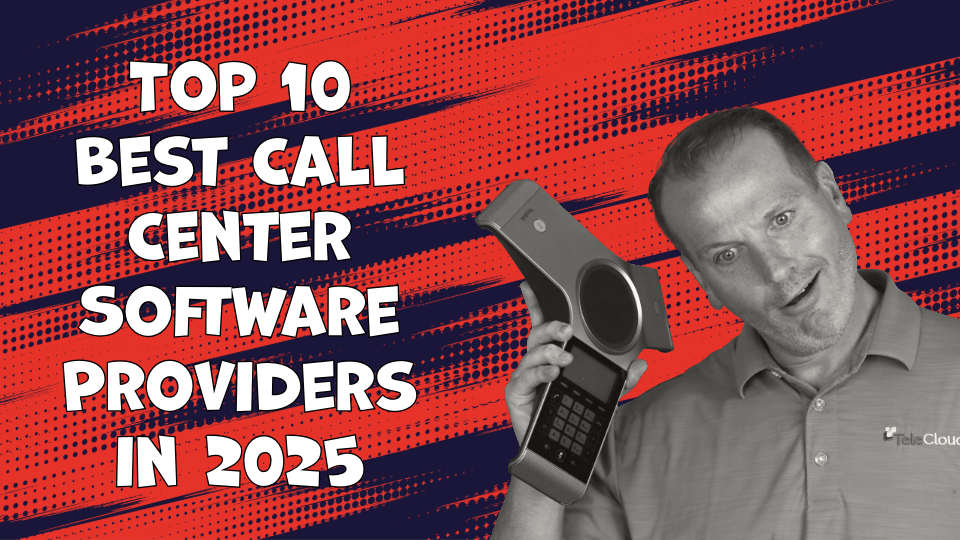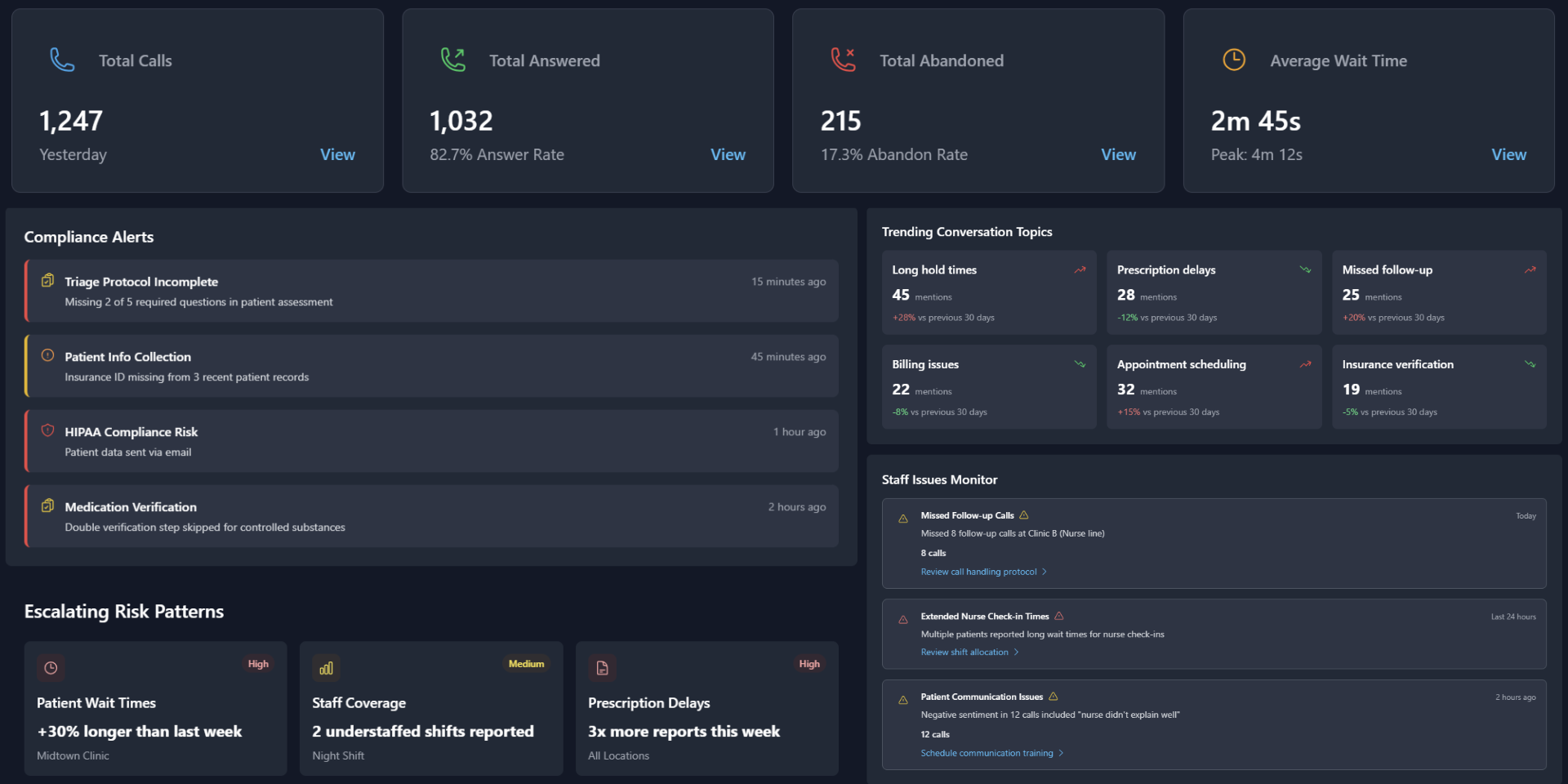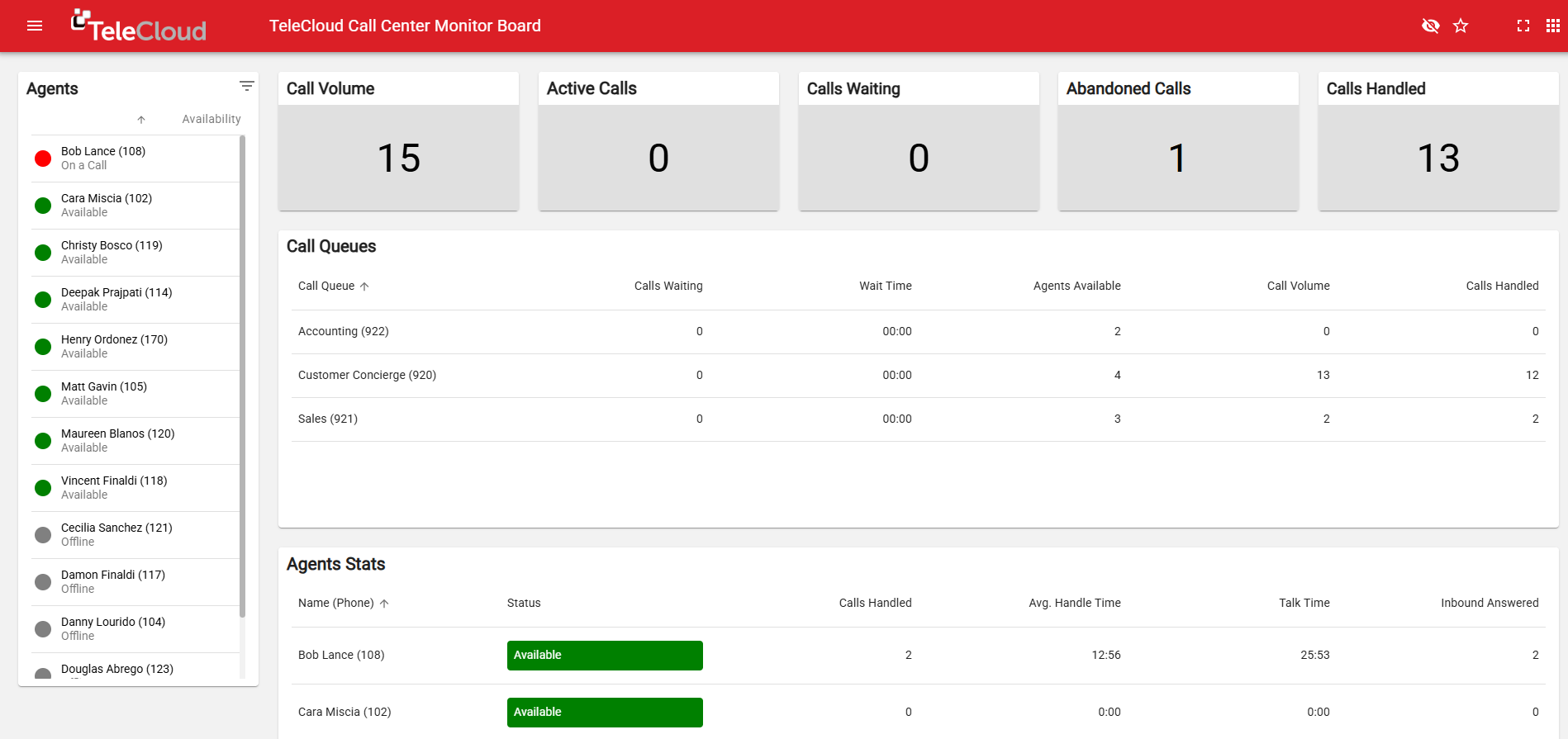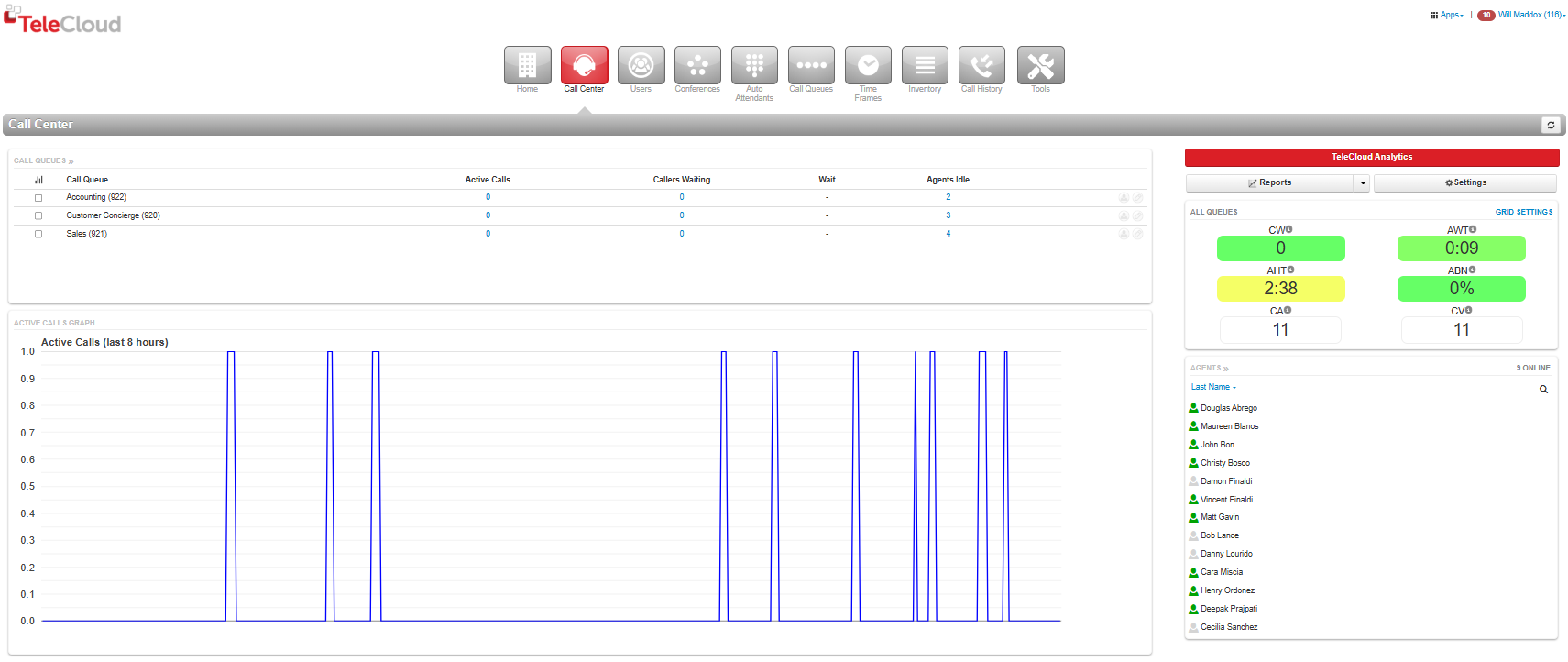Is Calling Still Relevant for Businesses in 2025? (Yes and Here’s Why)
May 27th, 2025
5 min read
By Will Maddox

In today's fast-paced digital world, it's easy to assume that phone calls are becoming obsolete. After all, customers have more ways than ever to connect: email, live chat, social media messaging, and even AI-powered chatbots.
But if you're running a business in 2025, here's the reality: phone calls remain essential and in many cases, they are more important than ever.
For service-driven industries, from urgent care clinics to law offices and home service providers, phone calls are not just about convenience. They offer immediacy, clarity, and above all, trust.
At TeleCloud, we help businesses navigate the fast-changing world of communication. What we've seen time and again is this: those who modernize their phone systems don’t just keep up, they lead. Intelligent calling platforms help businesses deliver better experiences, capture more opportunities, and avoid costly communication gaps.
In this article, we’ll explore why phone calls still matter in 2025, when other channels might be better, and how smart businesses are evolving how they use the phone to stay competitive.
Why Customers Still Choose to Call (And Why It Matters for Businesses)
While new communication channels continue to emerge, when it truly matters, when customers need quick answers, personal support, or are ready to make a decision, the phone remains their go-to choice.
Let’s explore why calling still plays such a critical role in today’s customer journey.
Speed Still Wins: When Customers Need Quick Answers
In urgent situations, few channels beat a phone call.
According to PATLive, 75% of customers believe calling is still the fastest way to get a quick response from a business.
While chatbots and email forms have their place, they often introduce friction. Waiting for a chat agent to respond or refreshing your inbox isn’t the same as dialing and speaking directly with someone who can help, right now.
This is especially critical in industries like healthcare, where speed and reassurance make all the difference in patient experience and outcomes.
Trust is Earned Through Human Connection
In a digital era, the value of human connection remains paramount. Despite the convenience of online channels, many consumers still prefer the assurance that comes from speaking directly to a person.
A recent survey by TransUnion highlights this preference: nearly 80% of consumers consider the phone channel important for communicating with businesses. This underscores the enduring significance of voice communication in building customer trust.
Being accessible and responsive via phone is no longer optional; it's a critical component of establishing credibility. A clearly identified phone number and a friendly voice provide reassurance that there's a real business ready to assist.
Phone Calls Drive Conversions at Key Moments
Despite the rise of digital channels, many customers still pick up the phone when they're ready to take action.
43% of search-related conversions happen over the phone (WhatConverts).
Think about when customers are ready to:
- Schedule appointments
- Confirm service pricing
- Ask follow-up questions before buying
Calls often come at critical decision-making moments, and if your team isn't ready to answer, those opportunities could disappear.
Why Calling Still Deserves a Place in Your Business Strategy
Phone calls aren’t just important for customer convenience; they directly impact your bottom line. From lost opportunities to strained internal communication, businesses without a reliable calling solution face real risks every day. Here’s why smart calling strategies still deserve your attention.
Poor Communication Is Expensive
Missed or mishandled calls aren’t just inconveniences; they’re business risks.
According to Nextiva, 83% of businesses have lost customers, missed deadlines, or faced internal issues due to communication problems.
When communication breaks down:
- Customers feel ignored or frustrated
- Employees lack clarity on tasks or priorities
- Deadlines and deliverables fall through the cracks
A reliable phone system doesn’t just help customers, it supports smoother internal communication and collaboration as well.
The Local Connection Advantage
Despite digital trends, local business interactions often remain personal and direct.
60% of customers prefer to call a business after finding them online (Nextiva).
Whether it’s confirming availability, asking about pricing, or scheduling services, the phone offers a fast, familiar, and efficient path to get answers.
This is especially important for small and local businesses, where calls make up a large percentage of inbound leads.
The Evolution of Business Phone Calls: Smarter, Not Static
Are Desk Phones Disappearing?
While the role of the desk phone is changing, it hasn’t disappeared.
59% of employees still use a desk phone every day (Nextiva), but modern work trends show flexibility is key:
- 70% use a desk phone at least once a week
- Mobile apps and laptops are increasingly common communication tools
- Remote work and hybrid environments demand more adaptable solutions
Businesses are shifting toward cloud-based phone systems that support both traditional desk setups and mobile workflows.
Smarter Calling: How Modern Solutions Make Every Call Count
Cloud communications and unified platforms like TeleCloud bridge the gap between old-school phone systems and modern needs:
- Intelligent routing sends calls to the right team or person, reducing wait times.
- CRM integration ensures staff have customer context when answering calls.
- Call recording and monitoring provide training opportunities and quality assurance.
- Mobile apps keep teams connected, even when they’re not at their desks.
The phone is no longer just about ringing and answering. It’s part of a larger communication ecosystem designed to create better customer experiences and more productive teams.
What’s Next for Business Calling?
Looking beyond 2025, calling will continue evolving.
AI will play a bigger role in call routing and analytics. Younger generations may lean more on mobile-first calling through apps and integrated systems. Omni-channel platforms will blend phone, chat, and video into seamless experiences.
But even with these innovations, phone calls will remain foundational. Why? Because at their core, they provide what no other channel can: immediate, personal, human connection.
Phone Calls Aren’t Going Away, They’re Getting Smarter
While communication tools will continue to evolve, one thing is clear: phone calls remain critical for trust, speed, and connection.
Customers still reach for the phone when it matters most and businesses that prioritize clear, intelligent phone communication will continue to win those moments.
The key is modernization. It’s not about abandoning calls; it’s about transforming them. Smarter phone systems help businesses turn every conversation into a valuable customer experience, one that builds loyalty and drives success.
Your phone system shouldn’t hold you back, it should help you connect, solve problems, and grow.
Ready to make every call count and elevate your customer conversations? Talk to a TeleCloud specialist today and see how intelligent communications can elevate every customer interaction in 2025 and beyond.
Frequently Asked Questions (FAQ)
Are phone calls still relevant in 2025?
Yes. Despite the growth of digital channels like chat, email, and social media, phone calls remain the fastest, most personal way to connect with customers, especially for urgent, complex, or high-value interactions.
Why do customers still prefer calling over other channels?
Calls offer immediacy, human connection, and clarity that digital channels can’t always match. In critical moments, many customers want to speak directly to a person.
What types of businesses benefit most from calls?
Service-based industries such as healthcare, law, home services, and professional consulting benefit greatly because calls often come at decisive moments when customers are ready to act.
How can missed calls hurt my business?
Missed calls mean missed opportunities. They can lead to lost sales, frustrated customers, and damage to your brand’s credibility.
Are desk phones still necessary?
While mobile and desktop apps are growing in popularity, many teams still use desk phones daily. The most effective setups offer flexibility, allowing employees to choose the right device for their role.
How can modern phone systems improve call handling?
Cloud-based systems offer intelligent routing, CRM integration, call recording, analytics, and mobile connectivity, helping ensure every call is answered effectively.
Should calls be my only communication channel?
No. Calls should be part of an integrated communication strategy that also includes chat, email, SMS, and social messaging. The key is using the right channel for the right situation.



















